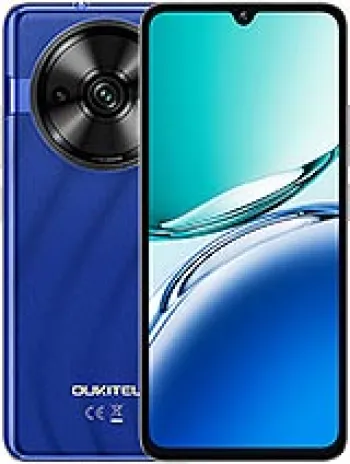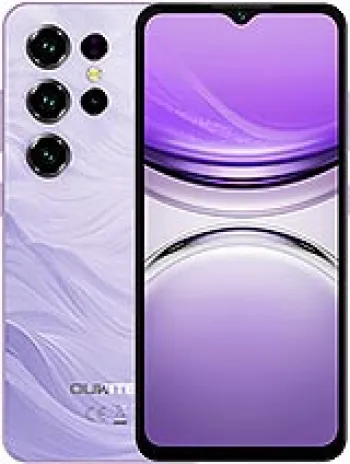
Overview of the Oukitel BT50
The Oukitel BT50 is a compact and practical device that was announced in January 2024 and subsequently released the same month. It stands out with a sleek design and offers basic functionalities suited for users looking for a simple digital experience without the complexities of smartphones.
Network Capabilities
One of the defining features of the Oukitel BT50 is its lack of cellular connectivity. The device does not support any cellular bands, which implies it cannot be used for traditional mobile calling or mobile internet services. Instead, it is designed to operate as an independent device possibly for fitness and health-related applications where cellular connectivity is not paramount.
Design and Build
The design of the Oukitel BT50 is minimalist and functional. With dimensions of 51.2 x 51.2 x 13 mm and a weight of just 76 grams, it is exceptionally lightweight and portable. The device is available in two colors: Silver and Gray, catering to a wide range of aesthetic preferences.
Display
The Oukitel BT50 is equipped with a 1.43-inch AMOLED display that offers a brightness level of 600 nits. The screen resolution of 466 x 466 pixels provides a pixel density of approximately 461 ppi, which results in a crisp and clear display quality. This makes it suitable for applications that require visual clarity such as reading notifications and monitoring health metrics.
Operating System and Performance
The device runs on a proprietary operating system, specifically tailored for the limited hardware and specific functionalities of the BT50. While the details about the processor and RAM are not explicitly mentioned, the focus on proprietary OS suggests a highly optimized environment that caters to the device’s specific performance needs.
Memory and Storage
The Oukitel BT50 does not feature any card slot for external memory, indicating that it does not support additional storage expansion. This is in line with its role as a specialized device perhaps for health tracking and notifications rather than multimedia consumption.
Sound Features
The device includes a loudspeaker for audible alerts and notifications but lacks a 3.5mm headphone jack, which is increasingly common in compact devices. This suggests that audio output is intended primarily for brief alerts rather than music playback.
Communication Capabilities
Bluetooth 5.2 is available, allowing the BT50 to connect with other Bluetooth devices for file sharing and possibly to sync data with smartphones or other gadgets. However, it lacks WLAN, NFC, radio, and USB connectivity, emphasizing its role as a standalone device or an accessory rather than a central gadget.
Sensors and Health Features
An accelerometer is included, which is standard in devices that track movement and physical activity. Additionally, the heart rate and SpO2 sensors position the BT50 as a health-focused device, likely collecting data on the wearer’s physical health and activity levels.
Battery Life
The device is powered by a 400 mAh non-removable Li-Po battery. Considering its limited functionality, this battery size should provide ample life for daily use. The non-removable aspect aligns with the trend in many modern devices, emphasizing a compact design and possibly longer product lifespan through the minimization of external ports and seams.
Price and Market Position
With a price point of approximately 100 EUR, the Oukitel BT50 is positioned as an affordable entry into the market for users seeking a simple yet functional digital assistant. Its features suggest it is aimed at the budget-conscious consumer who desires basic health tracking capabilities without the burden of a more expensive smartphone.
Conclusion
The Oukitel BT50 is an intriguing proposition for users who do not require full smartphone capabilities but still value a technologically advanced device for specific purposes like health monitoring and basic connectivity through Bluetooth. Its competitive price and array of sensors make it a noteworthy option in its niche market segment.
Key Features of Oukitel BT50
- Compact and lightweight design with dimensions of 51.2 x 51.2 x 13 mm and a weight of 76 g.
- AMOLED display with a brightness of 600 nits, offering clear visuals.
- High-resolution display with 466 x 466 pixels (~461 ppi density).
- Bluetooth 5.2 support for enhanced wireless connectivity.
- Equipped with sensors including an accelerometer, heart rate monitor, and SpO2 for health tracking.
- Li-Po 400 mAh battery providing reliable power.
- Available in attractive colors: Silver and Gray.
- Affordable price point at about 100 EUR.
Disadvantages of Oukitel BT50
- No cellular connectivity: The device does not support 2G, 3G, or 4G networks.
- No SIM card slot available, limiting the device's ability to function as a standalone communication device.
- Proprietary OS limits the availability of apps and software customization.
- No expandable memory slot (No card slot), restricting the storage capacity to internal memory.
- Lacks a camera feature, which might be a downside for users who rely on capturing photos or videos.
- No WLAN (Wi-Fi) support, limiting internet connectivity options.
- No GPS or positioning capabilities, affecting location-based services and navigation.
- Does not support NFC, which may be a limitation for contactless payments and other NFC-based functionalities.
- No USB port, limiting direct data transfer options with other devices.
- No radio capability for FM/AM listening.
- No 3.5mm audio jack, restricting the choice of headphones without relying on Bluetooth.



View Also
More Phones
All Rights Reserved +14266 Phones © Mobilawy 2025
























